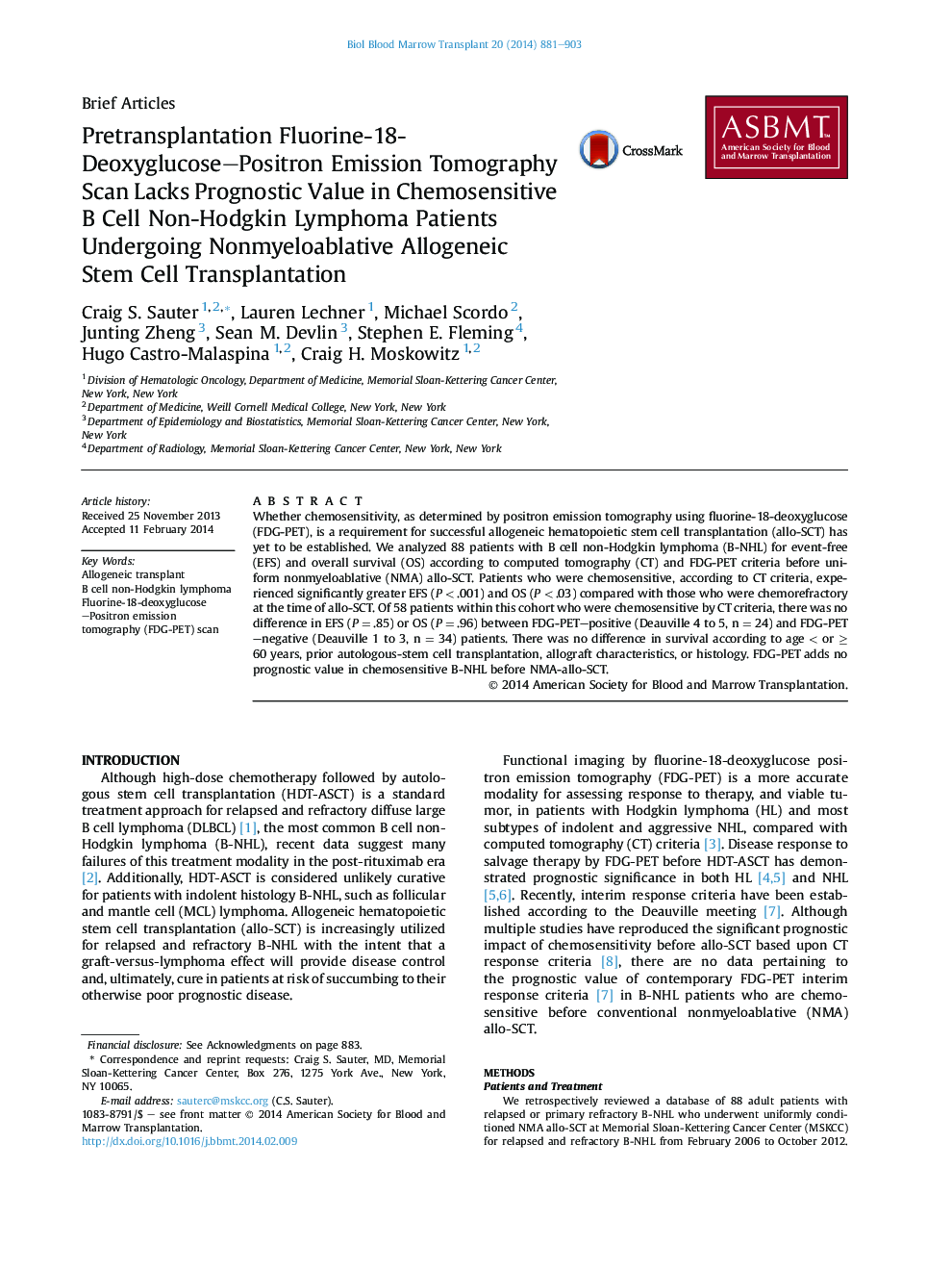| Article ID | Journal | Published Year | Pages | File Type |
|---|---|---|---|---|
| 2101952 | Biology of Blood and Marrow Transplantation | 2014 | 4 Pages |
Whether chemosensitivity, as determined by positron emission tomography using fluorine-18-deoxyglucose (FDG-PET), is a requirement for successful allogeneic hematopoietic stem cell transplantation (allo-SCT) has yet to be established. We analyzed 88 patients with B cell non-Hodgkin lymphoma (B-NHL) for event-free (EFS) and overall survival (OS) according to computed tomography (CT) and FDG-PET criteria before uniform nonmyeloablative (NMA) allo-SCT. Patients who were chemosensitive, according to CT criteria, experienced significantly greater EFS (P < .001) and OS (P < .03) compared with those who were chemorefractory at the time of allo-SCT. Of 58 patients within this cohort who were chemosensitive by CT criteria, there was no difference in EFS (P = .85) or OS (P = .96) between FDG-PET–positive (Deauville 4 to 5, n = 24) and FDG-PET–negative (Deauville 1 to 3, n = 34) patients. There was no difference in survival according to age < or ≥ 60 years, prior autologous-stem cell transplantation, allograft characteristics, or histology. FDG-PET adds no prognostic value in chemosensitive B-NHL before NMA-allo-SCT.
